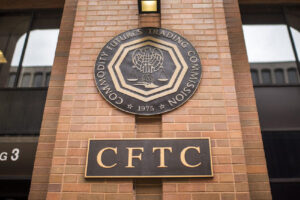Last week, the Commodity Futures Trading Commission (CFTC) awarded over $8 million to a whistleblower whose information led to multiple enforcement actions through the CFTC’s Whistleblower Program. Under this program, whistleblowers who provide information to the CFTC that leads to a successful enforcement action may receive up to 30% of the government’s recovery. However, there is an issue as to whether there will be enough government funding to keep this program afloat.
Would you take the risk of blowing the whistle if there wasn’t a chance of a reward?
The whistleblower who received the CFTC’s most recent award provided evidence that exposed deceptive practices by derivatives market participants. Maintaining its strict commitment to whistleblower confidentiality, the CFTC did not identify the whistleblower, or the companies involved. All we know, as stated by CFTC Director of Enforcement Ian McGinley, is “[i]t’s an important whistleblower whose information led multiple regulators to bring multiple enforcement actions.” McGinley further elaborated that the whistleblower’s insight fast-tracked the CFTC’s investigation and enabled other agencies to bring their own enforcement proceedings.
CFTC Whistleblower Chief Brian Young added to the chorus of whistleblower praise: “Based on the whistleblower’s involvement in the underlying conduct, the whistleblower provided extremely valuable insider information at a critical time during the investigations.” There is little question the CFTC recognizes the critical role whistleblowers play in assisting the agency go after commodities fraud.
The problem is the CFTC Whistleblower Program may be a victim of its own success. Established under the Dodd-Frank Wall Street Reform and Consumer Protection Act of 2010, the program has awarded approximately $380 million to whistleblowers since it was created and has led to the agency’s recovery of billions of dollars of fraudulent gains. But the future of the program is in jeopardy because it is running out of government funding. A revolving fund, capped at $100 million, supports both the awards and the operational costs of the Whistleblower Office. With the increasing whistleblower payouts, the agency has made, that fund is not large enough for the program’s continued operation.
CFTC Chair Rostin Behnam expressed the urgency of this issue during a recent Senate hearing: “Ultimately the payouts continue to grow and, if they do, it’s going to put the office in jeopardy from a staffing and a resource perspective.” The stakes are high, and without legislative intervention, the program could face significant operational disruptions.
What can be done to save the program?
Recognizing the program’s critical role, some lawmakers are debating measures to sustain it. In that vein, bipartisan legislation has been introduced with aims at securing the program’s future. This bill proposes raising the fund’s cap to $300 million and making permanent a separate $10 million account that supports the Whistleblower Office when the main fund is depleted.
More than 30% of the CFTC’s enforcement investigations originate from whistleblower tips. And since 2019, the number of tips received by the office has tripled, a pattern that is almost certainly to continue as long as the flow of awards continues unabated. As Former CFTC Whistleblower Chief Office, Christina McGlasson, noted, “There is a pipeline of awards and $100 million is not going to be sufficient.” Hopefully, the CFTC will get the legislative fix it so sorely needs to keep this critical program alive and well.
If you think you might want to be a CFTC whistleblower, or want to learn more about what it takes to be a successful whistleblower, please do not hesitate to contact us and we will connect you with an experienced member of our whistleblower team.
Read CFTC Whistleblower Program at Risk? at constantinecannon.com






Leave A Comment